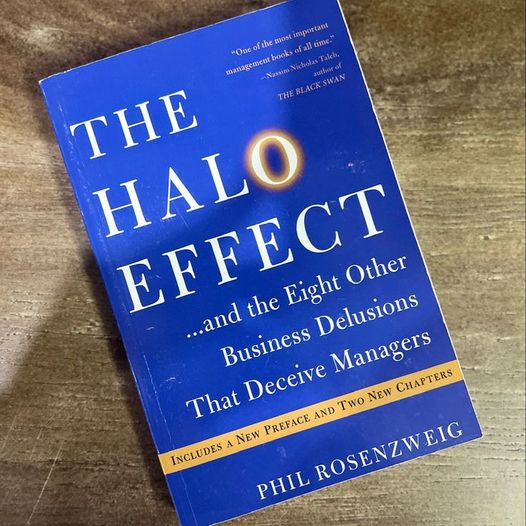Here are 7 lessons from The Halo Effect: . . . and the Eight Other Business Delusions That Deceive Managers by Phil Rosenzweig (Author)
1: The Illusion of the Halo Effect
"The Halo Effect: ... and the Eight Other Business Delusions That Deceive Managers" by Phil Rosenzweig challenges the concept of the Halo Effect, which refers to the tendency to attribute overall greatness or success to a company or individual based on a single positive trait or outcome. The book highlights the dangers of relying on this illusion and emphasizes the need for a more comprehensive understanding of business performance.
2: The Limitations of Simplistic Success Formulas
Rosenzweig criticizes the prevalence of simplistic success formulas in business literature. He argues that many bestselling books promise to reveal the secrets of success or the path to greatness but often operate at the level of storytelling rather than rigorous thinking. The book encourages readers to be cautious of such formulas and to seek a deeper understanding of the complexities of business success3: The Role of Bias in Business Analysis
The book explores the biases that can influence business analysis and decision-making. It highlights how biases, such as the Halo Effect, can distort perceptions and lead to flawed conclusions. By understanding and addressing these biases, managers can make more informed and objective decisions.
4: The Importance of Rigorous Research
Rosenzweig emphasizes the importance of rigorous research in understanding business performance. He argues that many books and articles in the business world lack scientific rigor and rely on anecdotal evidence or flawed reasoning. The book encourages readers to critically evaluate the research behind popular business theories and to seek out studies that provide more rigorous and reliable insights 1.
5: The Influence of Luck in Business Success
"The Halo Effect" acknowledges the role of luck in business success. While some books claim to have uncovered the secrets to achieving great performance, Rosenzweig argues that luck can play a significant role in outcomes. Recognizing the role of luck helps managers avoid overgeneralizing success factors and develop a more nuanced understanding of performance.
6: Avoiding Overreliance on Single Metrics
The book cautions against overreliance on single metrics or performance indicators when evaluating business success. Rosenzweig argues that using a single measure to assess performance can lead to misleading conclusions and neglect other important factors. Instead, he advocates for a more holistic and comprehensive approach to performance evaluation.
7: Critical Thinking and Skepticism in Business Analysis
"The Halo Effect" promotes critical thinking and skepticism in business analysis. It encourages readers to question popular narratives, challenge assumptions, and seek a deeper understanding of the complexities of business performance. By adopting a critical mindset, managers can make more informed decisions and avoid falling into the traps of common business delusions.




